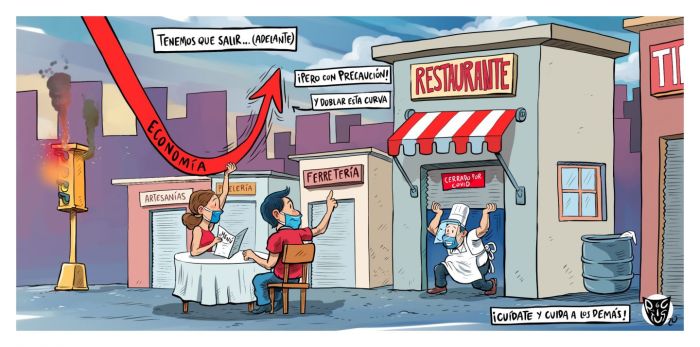In the whirlwind of life, the phrase “tenemos que salir ahora mismo” rings out with a sense of urgency, demanding immediate attention. It’s a call to action, a plea to abandon all distractions and focus on the pressing matter at hand.
This expression transcends language and culture, resonating with anyone who has faced a situation where every second counts. Its implications are profound, reminding us of the consequences of delay and the importance of seizing the moment.
Meaning and Context

The literal translation of “tenemos que salir ahora mismo” is “we have to leave right now.” It is a phrase used to express urgency and the need for immediate action.
This phrase is commonly used in a variety of scenarios, such as:
Urgent Situations
- When there is a fire or other emergency.
- When someone is in danger.
- When there is a time-sensitive task that needs to be completed.
Urgency and Action

The phrase “tenemos que salir ahora mismo” conveys a sense of urgency and the need for immediate action. It is a command that demands attention and a swift response. The word “tenemos” emphasizes the collective responsibility, indicating that it is not just one person’s duty to act but a shared obligation.
The phrase “salir ahora mismo” further intensifies the urgency by specifying that action must be taken immediately. The word “ahora” (now) underscores the need for promptness, while “mismo” (right now) emphasizes the immediacy of the situation. Together, these words create a sense of impending danger or a pressing need that cannot be delayed.
Implications of Immediate Action
The need for immediate action has several implications. First, it suggests that the situation is critical and requires attention without delay. Waiting or procrastinating could have severe consequences.
Well, it seems like we have to leave right now. But before we go, let me just grab the click clack the rattlebag pdf . I’ve been meaning to read it for a while now, and I think it would be the perfect thing to keep me occupied on our journey.
Okay, I’ve got it. Now, let’s head out!
Second, it implies that the situation may worsen if action is not taken promptly. The longer one waits, the more challenging it may become to address the issue effectively.
Finally, it highlights the importance of prioritizing the task at hand over other activities. When faced with a situation that demands immediate action, it is crucial to set aside other distractions and focus on resolving the urgent matter.
Reasons for Leaving
There are several reasons why someone might need to leave immediately. These reasons can be personal, professional, or due to unforeseen circumstances.
The following table provides a list of potential reasons for leaving and their corresponding scenarios:
Personal Reasons
- Family emergency:A family member has become seriously ill or injured, or there has been a death in the family.
- Medical emergency:The person themselves has become seriously ill or injured and needs immediate medical attention.
- Mental health crisis:The person is experiencing a mental health crisis and needs to seek professional help immediately.
- Domestic violence:The person is experiencing domestic violence and needs to leave the situation immediately for their safety.
li> Natural disaster:The person’s home or workplace has been damaged or destroyed by a natural disaster, and they need to evacuate immediately.
Professional Reasons
- Job loss:The person has been laid off or fired from their job and needs to leave the workplace immediately.
- Workplace harassment:The person is experiencing workplace harassment and needs to leave the situation immediately for their safety.
- Workplace violence:The person is experiencing workplace violence and needs to leave the situation immediately for their safety.
- Business travel:The person needs to leave for business travel immediately.
Unforeseen Circumstances
- Car accident:The person has been involved in a car accident and needs to leave the scene immediately.
- Fire:The person’s home or workplace is on fire, and they need to evacuate immediately.
- Flood:The person’s home or workplace is flooding, and they need to evacuate immediately.
- Power outage:The person’s home or workplace has lost power, and they need to leave immediately to find a place with power.
Consequences of Delay

Delaying or ignoring the phrase “tenemos que salir ahora mismo” can have serious consequences. Timely action is crucial in many situations, and failure to act promptly can lead to negative outcomes.
Missed Opportunities
One consequence of delay is missing out on opportunities. For example, if you delay responding to a job offer, the position may be filled by another candidate. Similarly, if you delay investing in a promising business venture, you may lose out on potential profits.
Increased Risks, Tenemos que salir ahora mismo
Delay can also increase risks. For instance, if you delay seeking medical attention for an illness, your condition may worsen and become more difficult to treat. Likewise, if you delay taking action to address a financial problem, your debt may grow and become more difficult to manage.
Negative Impact on Others
In some cases, delay can negatively impact others. For example, if you delay paying your rent, your landlord may evict you. Similarly, if you delay returning a borrowed item, the person who lent it to you may become inconvenienced.
Effective Communication
Effective communication is crucial when conveying urgency. By utilizing the appropriate body language, tone of voice, and clear speech, you can effectively convey the importance of the message.
Nonverbal Cues
Body language plays a significant role in communicating urgency. Maintain eye contact, use hand gestures, and adopt a confident posture. These nonverbal cues reinforce the urgency of your message and convey that you mean business.
Tone of Voice
The tone of voice is equally important. Speak clearly and with a sense of urgency, but avoid sounding panicked or aggressive. Use a firm and assertive tone to convey the importance of the matter without causing unnecessary alarm.
Clear Speech
Finally, ensure your speech is clear and concise. Use simple language and avoid jargon or technical terms that may confuse the recipient. Break down complex information into smaller, more manageable chunks to facilitate understanding.
Cultural and Linguistic Variations: Tenemos Que Salir Ahora Mismo

The phrase “Tenemos que salir ahora mismo” is a Spanish expression that translates literally to “We have to leave right now.” However, the interpretation of this phrase can vary across cultures and languages.
In some cultures, such as in Latin America, the phrase may be used more frequently and with a greater sense of urgency than in other cultures. This is because in Latin American cultures, it is common to value punctuality and to prioritize social commitments.
Similar Expressions in Other Languages
- In English, a similar expression is “We need to go right now.” This phrase is also used to convey a sense of urgency, but it may be less forceful than the Spanish phrase “Tenemos que salir ahora mismo.”
- In French, the phrase “Il faut qu’on parte tout de suite” is used to express the same sentiment. This phrase is more formal than the Spanish phrase, and it may be used in more formal settings.
- In German, the phrase “Wir müssen jetzt sofort gehen” is used to convey a sense of urgency. This phrase is similar in tone to the Spanish phrase “Tenemos que salir ahora mismo.”
Commonly Asked Questions
What are some reasons why someone might need to leave immediately?
There are countless reasons, including emergencies (fire, natural disasters), medical emergencies, personal safety concerns, time-sensitive opportunities, and unexpected events.
What are the consequences of delaying or ignoring the phrase “tenemos que salir ahora mismo”?
Consequences can range from minor inconveniences to life-threatening situations, depending on the context. Delays can lead to missed opportunities, worsened emergencies, and increased risks.
How can I effectively convey the urgency of the message “tenemos que salir ahora mismo”?
Use clear and concise language, maintain eye contact, speak with a firm and assertive tone, and use body language that conveys urgency (e.g., standing up, moving closer).